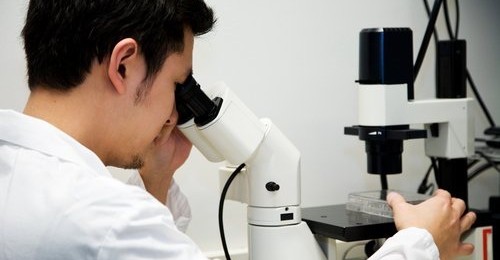
Harvard scientists have pioneered a fast and efficient new technique for turning adult cells into induced pluripotent stem cells (iPS) that is already changing laboratory practice and eliminates a major safety hurdle of using such cells to treat patients, reports the Boston Globe.
Four years ago it was discovered that ordinary skin cells can be transformed into powerful stem cells capable of developing into any type of cell in the body, but the method used to reprogram the cells involved viruses and genes that modify the genome and could cause cancer in human patients.
The new technique, however, offers major improvements. It does not involve dangerous genetic alterations, and is almost twice as fast and up to 100 times more efficient than the standard method used to turn cells back to an embryonic-like state. The use of iPS technology also holds great promise in eliminating the need to create and destroy human embryos to produce embryonic stem cells.
“When we set about this project, we didn’t intend to tackle all these issues,” said Derrick Rossi, a stem cell biologist at Children’s Hospital Boston and the Harvard Stem Cell Institute who led the research. “Several of the major hurdles toward clinical translation of iPS cells are addressed by this technology, and that’s what we’re excited about.”
Read more: Harvard scientists report progress in stem cell production (Boston Globe)






























